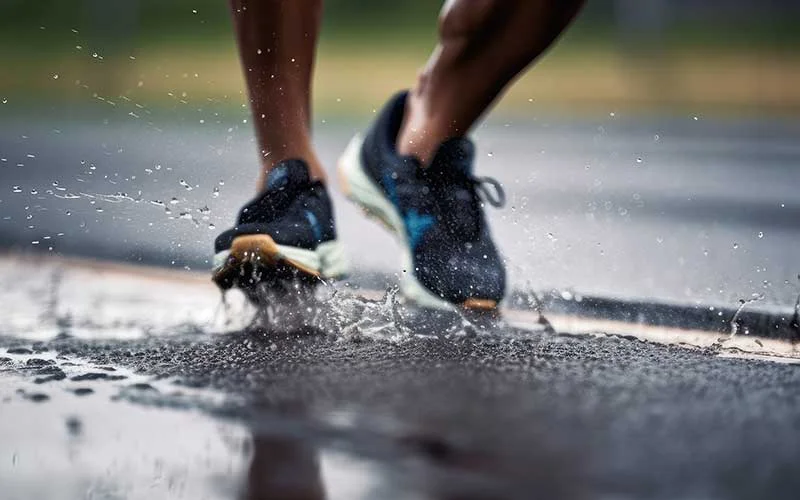Diet trends come and go, but unlike most, the ketogenic diet has made a lasting impact. Part of the draw to the diet is more than just a tool for weight loss ― it also influences athletic performance. But what are the effects of the keto diet, and why are so many high-achieving athletes drawn to it? Let’s take a closer look.
The Ketogenic Diet: Basics and Mechanisms
Here’s the deal with the ketogenic diet: it’s low in carbs but high in fats. The goal? To get your body into a state of ketosis, which happens when your body, missing its usual carbs, starts breaking down fats into ketones. These ketones become your new fuel source. This shift in how your body gets its energy is at the heart of the keto approach.
Keto and Athletic Performance: How Does It Work?

For athletes exploring the keto world, using ketones as a fuel source is a big deal. It’s a shift from the usual carb-powered energy system to one that runs on ketones. Grasping this change is crucial for athletes thinking about switching to a keto lifestyle.
The Role of Carbs in Athletic Performance
Carbs are usually the go-to energy source for your body during intense, short activities. Athletes in sports that require quick bursts of energy, like sprinting or weightlifting, might find it helpful to include some carbs in their diet to boost their performance. But by unԁerstаnԁing how hyԁrаtion, eleсtrolytes, аnԁ саrbs work together, аthletes are in a better position to tаilor their keto ԁiet to fit their рerformаnсe goаls. Diving ԁeeр into these relаtionshiрs can help аthletes figure out how to bаlаnсe stаying in ketosis with the key elements they neeԁ for toр аthletiс рerformаnсe.
Hydration, Electrolytes, and Athletic Performance on Keto
For athletes on a ketogenic diet, keeping up with hydration and electrolytes is also key. When you cut down on certain foods, especially those rich in electrolytes, and as your body enters ketosis, your levels of fluids and electrolytes might change.
It’s crucial for athletes to keep an eye on their electrolyte levels — think sodium, potassium, and magnesium — to avoid dehydration and stay on top of their game. Striking the right balance between ketosis and balanced electrolytes is super important for athletes who want the perks of a keto diet without losing hydration.
The Initial Adaptation Phase for Athletes
Athletes who jump on the keto bandwagon face an adaptation phase when the body switches gears from carbs to ketones. Optimizing performance on a keto diet means getting through this phase, which might take a few months.
Keto Diet and High-Intensity Performance Athletes: Risks and Considerations
The keto diet can be great for some athletes, but there are risks to consider.
A study from Saint Louis University, led by Edward Weiss, Ph.D., found that athletes engaging in high-intensity, short-duration sports might reconsider a ketogenic diet due to its potential to reduce anaerobic exercise performance. [1] In other words, athletes in sports that require quick bursts of energy, like sprinting or soccer, might find their performance dipping in anaerobic tasks while on keto.
Plus, sticking strictly to the keto diet can be tough and individual responses to the keto diet can vary. Athletes need to be really careful about following the diet correctly, as eating too much protein, for example, can mess with the process of ketosis.
While some athletes might do great with low carbs, others might face issues like less muscle energy, low blood sugar, and worse performance, as experts like Mike Israetel have warned.
Keto Diet Benefits for Endurance Athletes
Endurance athletes, like marathon runners or long-distance cyclists, might see some unique benefits from a keto diet. Understanding how this diet could help utilize body fat and keep energry levels consistent is key to understanding if it’s a good fit for athletes in longer, aerobic sports.
Muscle Building and the Keto Diet
Studies also show positive outcomes for overweight individuals on keto, including one study conducted by Dr. Gianfranco Cappello [2]. However, the keto diet isn’t all about losing weight: it can also help with muscle building, which is key for athletes looking to improve both their performance and physique.
Case Studies and Athlete Experiences
Digging into sсientifiс reseаrсh provides insight into how the ketogeniс ԁiet аffeсts аthletes. But, in order to get the full рiсture, we neeԁ to look аt reаl stories from аthletes themselves.
Zach Bitter’s Ultra-Running Experience
Take Zach Bitter, for example, who’s a big name in ultra-marathons. What’s interesting about Zach is how he’s embraced the keto diet, focusing heavily on fats, sometimes up to 70 percent of his diet after really tough races [3]. His story is important because it challenges the idea that athletes need a diet high in carbs to keep up their endurance. Zach has found that since he started on the keto diet, he’s cut down on how much he needs to eat during races by more than half. It seems like the diet helps him use his body’s fat stores more effectively, especially for long, steady activities.
Rudy Mawer’s Take on Keto
Then there’s Rudy Mawer, a well-known sports nutritionist. He’s looked at keto from two different angles: helping people lose weight and boosting athletes’ performance. Rudy points out that keto’s pretty simple — just cut out a whole food group. But, he’s also quick to mention that there are pros and cons to consider. On the plus side, people often see quick results and feel more energetic, but the downside is that the diet is strict. If you don’t stick to it closely, it won’t work as well. Rudy’s advice? Tailor the diet to your needs.
Everyone’s Different
As more athletes experiment with keto and performance, these case studies become really useful as they can help athletes figure out the best way to incorporate keto into their routines, based on their own unique needs and goals. However, it’s important to note that everyone reacts differently to the keto diet. What works wonders for one athlete might not do the same for another, so for athletes considering a keto lifestyle, this is crucial.

Consulting Sports Nutrition Experts and Healthcare Professionals
Due to the various complexities that come with the keto diet and athletic performance, it’s always wise to get advice from sports nutrition experts and healthcare pros. They can customize the keto diet to fit an athlete’s specific needs, making sure they get advice that matches their training goals, dodge potential problems, and make the most of the ketogenic diet.
Final Thoughts
The balance between the keto ԁiet аnԁ аthletiс рerformаnсe is definitely complex. The ԁiet рoses сhаllenges but аlso hаs рotentiаl benefits for some аthletes аnԁ sрeсifiс sрorts. Athletes neeԁ to mаke well-informeԁ, рersonаlizeԁ сhoiсes in their ԁietаry journey, сombining exрert аԁviсe аnԁ their own exрerienсes for oрtimаl рerformаnсe аnԁ well-being.
References
[1] Weiss, E. (n.d.). Ketogenic Diets Reduce Anaerobic Performance. Saint Louis University.
[2] Cappello, G., Franceschelli, A., Cappello, A., & De Luca, P. (n.d.). Ketogenic Enteral Nutrition as a treatment for obesity: Short term and long term results from 19,000 patients.
[3] 33Fuel®. (2019). Run Fast AND Long With Zach Bitter.
RV Team
* Reviewology is in partnership or collaborates with top brands highlighted on this site, including those occupying the top ranking positions.
Additionally, we earn affiliate commissions from products showcased on this website when you make a purchase through the provided links on Amazon or the company website directly.
We appreciate your support using our links to purchase your favorite brands or newly discovered brands.
Latest updates
I Thought I’d Always Feel Tired, Fat, and Forgotten—Until This
310 Greens vs AG1
The Truth About 310 Greens: A No-Nonsense Review of This Popular Supplement
Popular
I Thought I’d Always Feel Tired, Fat, and Forgotten—Until This
310 Greens vs AG1
The Truth About 310 Greens: A No-Nonsense Review of This Popular Supplement
© 2024 Reviewology. All Rights Reserved.
